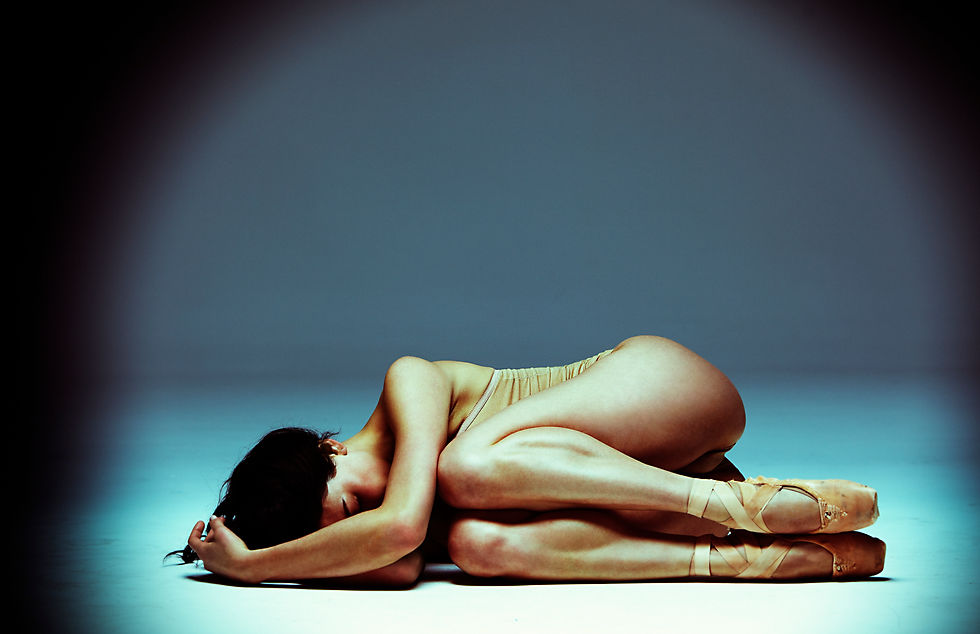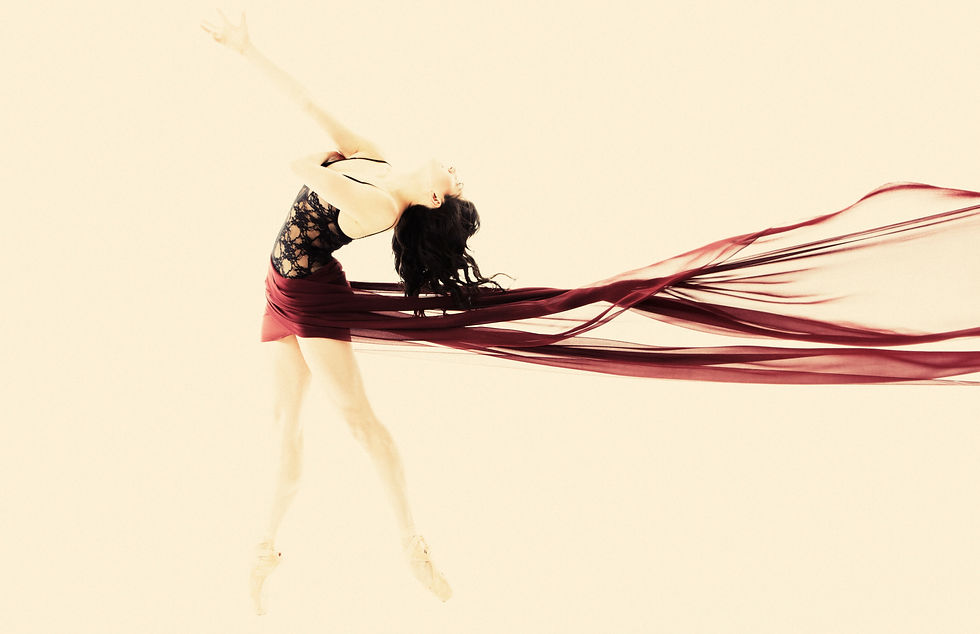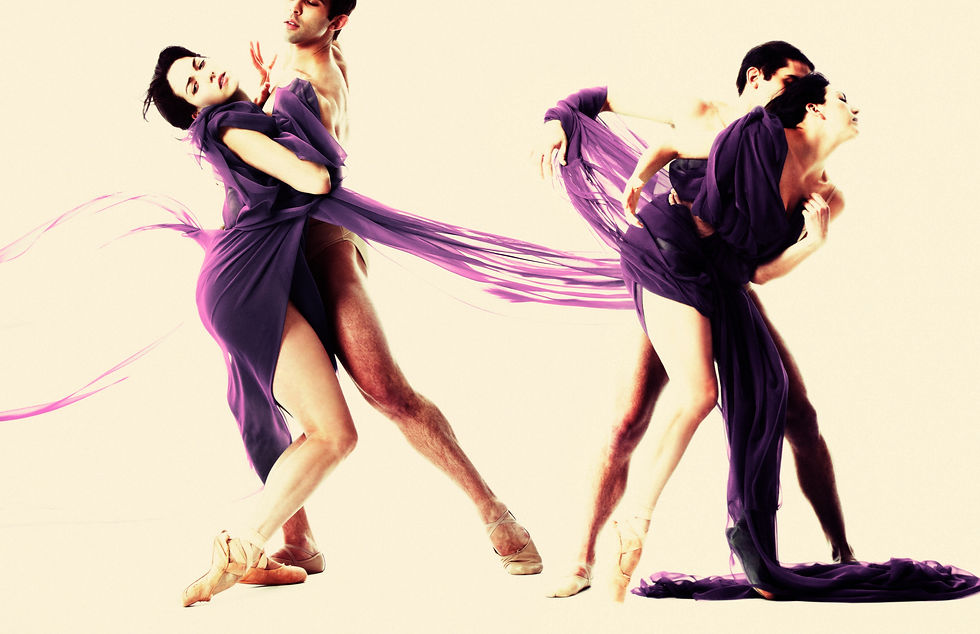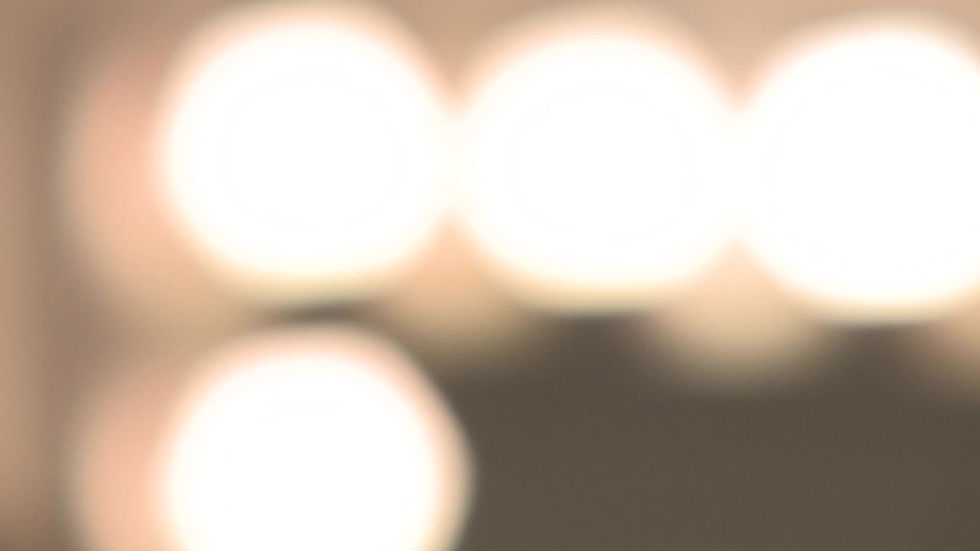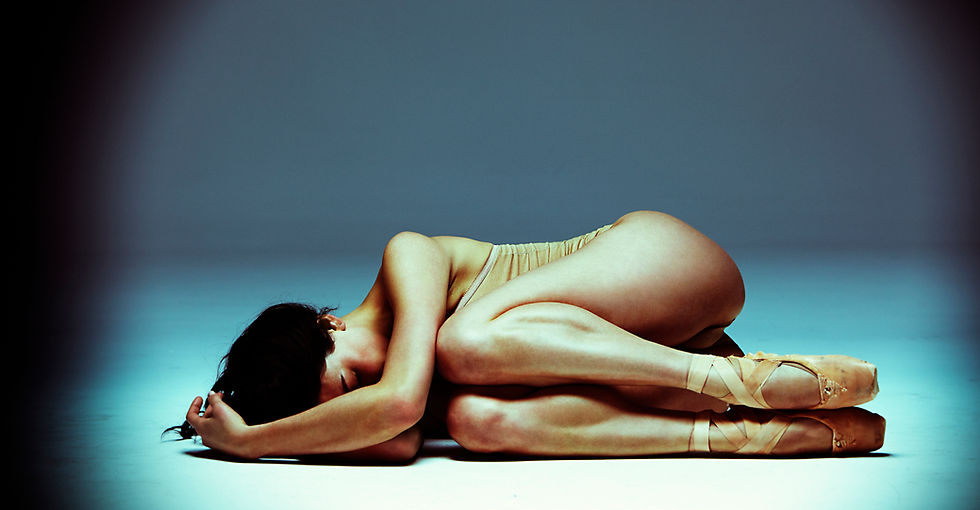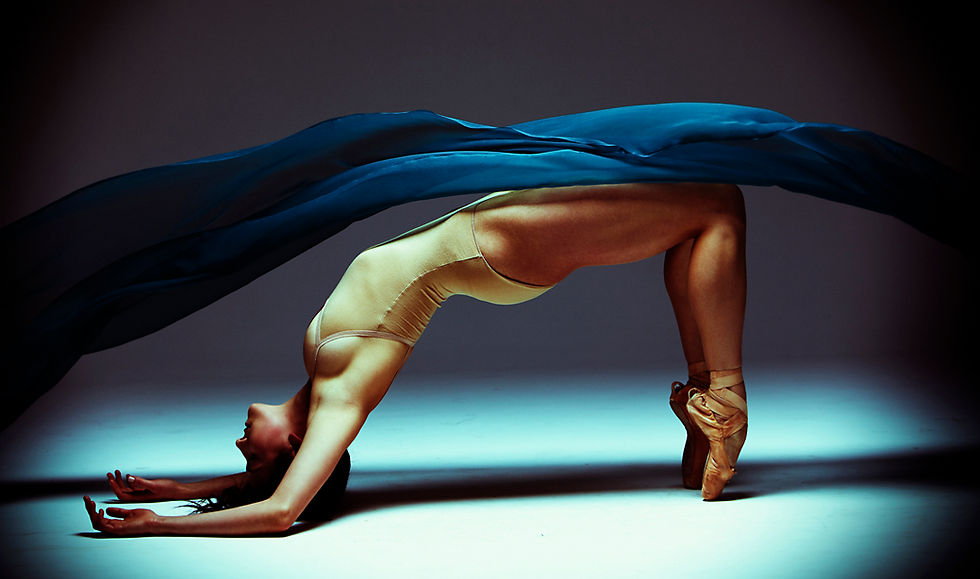
ZERO GRAVITY
Photographed by Caitlin Mitchell | Written by Jannica Cuaresma
COVER STORY
WITH NYC'S BALLET NICOLA CURRY & TOBIN EASTON
In order to survive, Catherine knew that she had to find a way to heal from the inside-out – to gain back what she first lost, to once again develop her energy, stamina, and strength. During her treatment, she regained control of her physical self by practicing Body Mind Centering (BMC), an integrated and embodied approach to movement, the body, and consciousness.
H arvard graduate Catherine Musinsky, widely known for her award-winning short film, Unchastened, was diagnosed with locally advanced breast cancer and overcame a mastectomy, months of chemo rounds, 30 days of high level radiation, and a year of infusions. While enduring the mental, physical, and emotional strife of cancer, she surrendered to the power of the moment, and regained control of her physical self through Body Mind Centering and the healing power of dance.
In an ideal marriage, there will come a point when there is shared instinct between lovers. Each lover will sense when the other needs a rub on the shoulders, a smile to acknowledge the highlights of the day, or a toast to surviving the hardships of life. This shared instinct is like an unspoken action-reaction phenomenon, ignited by passion and strengthened by chemistry. It is like a dance in which lovers are so well-connected and attuned to each other that they don’t need to guess what’s going on. They don’t need a script or choreography. It is like a dance that blossoms in perfect unison.
For Catherine Musinsky, there will come a point in her life when she will develop this shared instinct with herself. This point will come when she accepts herself for everything that she is, everything that she is not, and everything that she could be. This point will come when she completely – finally – surrenders to the love that she has for herself, no matter what has happened in the past, and no matter what may come in the future.
The year was 2006. The day seemed like many other days in Catherine Musinsky’s life – she dressed comfortably and anticipated a long dance rehearsal with Lorraine Chapman the Company, work at the university, and dinner with good friends. That is, until she felt something unusual. Beneath her smooth skin, above her left ribs, and under her left armpit was a protrusion. It was a solid mass that rolled under her fingers when she felt it. But, with another busy yet pleasant day still ahead, she decided to ignore it, dismissing it as a harmless cyst for months to come.
Then, one physical and one mammogram later,
she underwent biopsies and ultrasounds at
Beth Israel Hospital, where she finally learned
that she had triple positive breast cancer.
Then, one physical and one mammogram later, she underwent biopsies and ultrasounds at Beth Israel Hospital, where she finally learned that she had triple positive breast cancer. This form of cancer grows in response to not one, not two, but three bodily chemicals – a protein called HER2, estrogen, and progesterone – making it an aggressive, fast-growing, and undoubtedly life-threatening disease.
With valiant spirit, Catherine decided to confront the cancer and immediately consented to a mastectomy. But, as if it had a balefully clever mind of its own, the cancer intensified the battle it waged against Catherine into a war, forcing her to also consent to chemotherapy, despite the risks that came with this form of treatment.
The chemotherapy dissipated every ounce of energy, stamina, and strength in all of her muscles, which were, prior to this, lean and fit from hours and hours of dancing. She couldn’t bathe, eat, or even read. This is all because chemotherapy doesn’t discriminate which cells to attack. While it attacks cancerous cells, it may attack healthy cells as well, making it just as aggressive as the cancer it is trying to beat.
After two months of chemotherapy, Catherine felt like she had reached her threshold for pain. She was simply too exhausted, having endured so much internal physical fighting. She felt submerged in her own body, vacuumed into herself, and stuck in seemingly endless suffering. Moreover, all the pain and exhaustion were manifesting themselves on the outside – she lost every strand of hair, and she was losing her physique from a drastic loss of appetite. At any moment, death could float down like a thin sheet of black silk through windless air and she’ll be too worn out to move out of its way.
In addition, the cancer also spread into her mind and heart, attacking her on a mental and emotional level. She wondered if people would look at the cancer before they looked at her as Catherine. She feared that society would deem her inadequate for not meeting specific standards for what is desirable. She also questioned her value to society as a woman, as chemotherapy is known for inducing infertility. These mental and emotional attacks were, perhaps, even more agonizing than the chemotherapy, which lasted for a total of 4 months.
Yet, Catherine’s fight against cancer was still not done. For 30 consecutive days, she underwent high-level radiation that targeted her chest and armpit. Then, every week for an entire year, she received infusions of Herceptin®, an antibody treatment with its own long list of risks.
In order to survive, Catherine knew
that she had to find a way to heal from the
inside-out – to gain back what she first lost, to once again develop her energy, stamina, and strength.
In order to survive, Catherine knew that she had to find a way to heal from the inside-out – to gain back what she first lost, to once again develop her energy, stamina, and strength. During her treatment, she regained control of her physical self by practicing Body Mind Centering (BMC), an integrated and embodied approach to movement, the body, and consciousness.
Next, Catherine regained control of her mentality and attitude by reflecting back on a childhood memory. When she was seven years old, her father got into an accident that left him paralyzed. This event spurred many other chaotic difficulties for her entire family. But, together, they rose above the adversities they encountered and learned that anything can happen to anyone at any time, and that the healthiest thing to do is move forward with life. In addition to this childhood memory, her family and close friends with their unwavering love, support, messages, and chicken soup, encouraged her to push through the long and arduous journey to recovery.
Lastly, Catherine regained control of her emotional self by turning to her passion – dance improvisation – and expressing herself in a healthy manner. By practicing this form of dance, she relearned how to listen to herself and her surroundings, and then dance in reaction to the push and pull of the rhythm of music and nature. In time, she became attuned to the energy within her and around her, and she could peacefully surrender to the forces of the moment. In essence, she redeveloped a shared instinct with herself.
And Catherine has never hidden from the world since then. With renewed physical strength, mentality, and attitude; and a rekindled connection with herself, Catherine was able to persevere through what was, perhaps, the most taxing, disheartening, and perilous chapter of her life. She completed 17 months of treatment, and successfully survived and defeated one of the most merciless illnesses that has ever burdened humankind, and she remains cancer-free to this day.
In 2010, she took her dance improvisation to the next level by doing something unexpected and revolutionary. In collaboration with the film maker and her good friend, Brynmore Williams, she starred in Unchastened. This short film features a black stage, a black curtain, and a lady with prime physique, short caramel-brown hair with subtle sun-kissed highlights, cobalt-blue yoga pants draping lightly down the calf, and an intricate henna tattoo of a Persian flower on her left reconstructed breast, the same breast that survived triple-positive cancer. This is Catherine – in full control of her physical, mental, and emotional state. This is Catherine – far beyond all shallow societal demands and standards, because she has completely accepted herself. This is Catherine – in one of her best moments – authentic, in the moment, her natural beauty being shared through contact improvisation, and in perfect unison with herself.
Catherine Musinsky offers workshops and lectures for creative people on surviving cancer. Her last session took place at Dartmouth, a discussion for artists and art therapists on “art and therapy” that included a solo performance. Please stay tuned to her website for further information.
CANCER
I
SSUE

